Our recommendations are made independently. We may receive commissions from purchases made via our links.
The Best Substitutes for Apple Cider Vinegar
Suddenly ran out of apple cider vinegar? Here are the best substitutes for apple cider vinegar that you can use to salvage your recipe from the ACV shortage!
Apple cider vinegar (ACV) has been used for thousands of years for a variety of purposes. Aside from being commonly used in traditional medicine and house cleaning, ACV is very popular in the culinary world, too. Its tartness — mixed with a fruity hint of sweet apples — makes it a great flavor enhancer for a variety of dishes.
However, if you suddenly run out of ACV in the kitchen, the following are the best substitutes for apple cider vinegar that will save your painstakingly prepared meal!
White Wine Vinegar Substitutes for Apple Cider Vinegar
If you have a bottle of white wine vinegar in your pantry, you’re in luck. It is arguably the best substitute for ACV all around.
The reason? Although it may not have the special fruity undertone of ACV, the acidity level of white wine vinegar is comparable to ACV.
So, even with a 1:1 substitution ratio, you can get roughly the same tangy flavor profile as with using ACV. In other words, for every unit of ACV demanded by the recipe, match it with one unit of white wine vinegar.
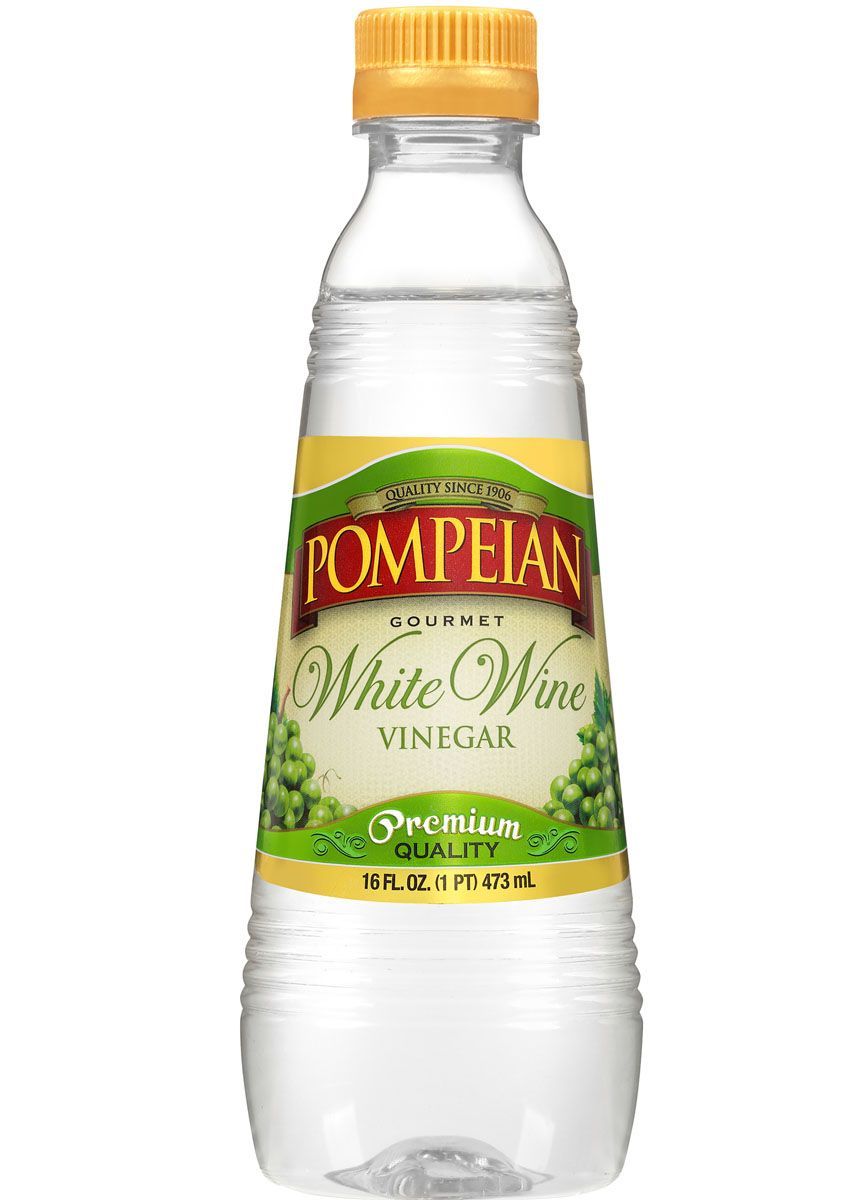
Can I Use Straight White Wine?
If you have a bottle of white wine around, it can actually be used in place of ACV!
The natural sweetness of ACV is very similar to that of white wine. This, combined with the tartness of the wine, makes it a decent substitution even though it’s not vinegar.
Like white wine vinegar, it’s possible to use a 1:1 substitution ratio with straight white wine.
Lemon Juice
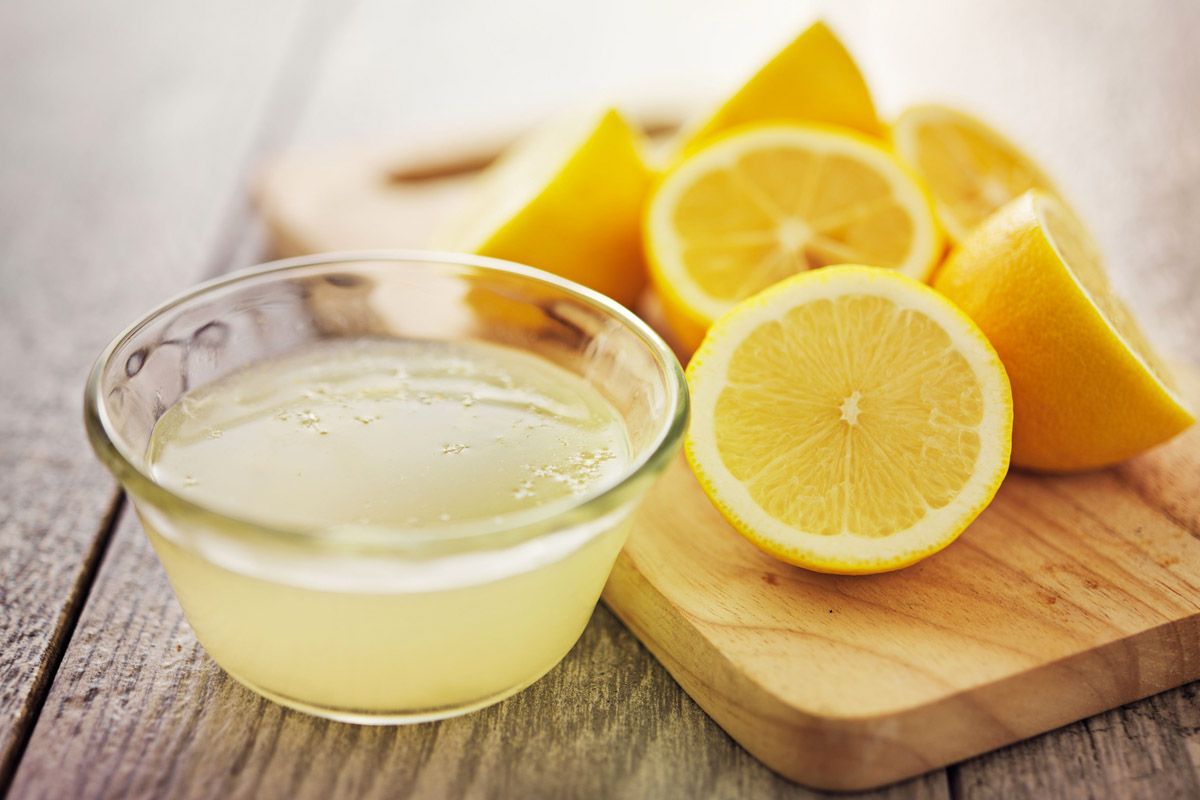
Lemon juice has a flavor profile that is very similar to ACV.
Its acidity and low pH level mean it can match the sourness of vinegar. The sweet, citrusy undertone of lemon also makes a decent substitute for the fruity tones of apple in ACV.
You can use a 1:1 substitution ratio for lemon juice.
Lime Juice
Lime juice is very similar to lemon juice and also makes a good substitute for ACV if you don’t have anything else around. However, because lime juice is sourer and less sweet than lemon juice, we recommend using a lower ratio.
Start with ½ the amount of ACV required in the recipe. Slowly work your way up until the taste and acidity are acceptable.
Red Wine Vinegar Substitutes for Apple Cider Vinegar
Red wine vinegar can also be a good substitute for ACV. However, compared to white wine vinegar, the reddish counterpart is significantly stronger and bolder in flavor. This can be a problem if you’re making a dish that only needs a subtle hint of vinegar.
Additionally, its red coloring can be an issue.
Just as red wine can stain your clothes and anything it touches, red wine vinegar will have the same effect when drizzled on food. This is all due to a natural pigment called anthocyanin, which gives red wine its distinctive deep red hue.
There’s not a lot you can do about this. If the coloration of the food is important to you, red wine vinegar may not be a good choice.
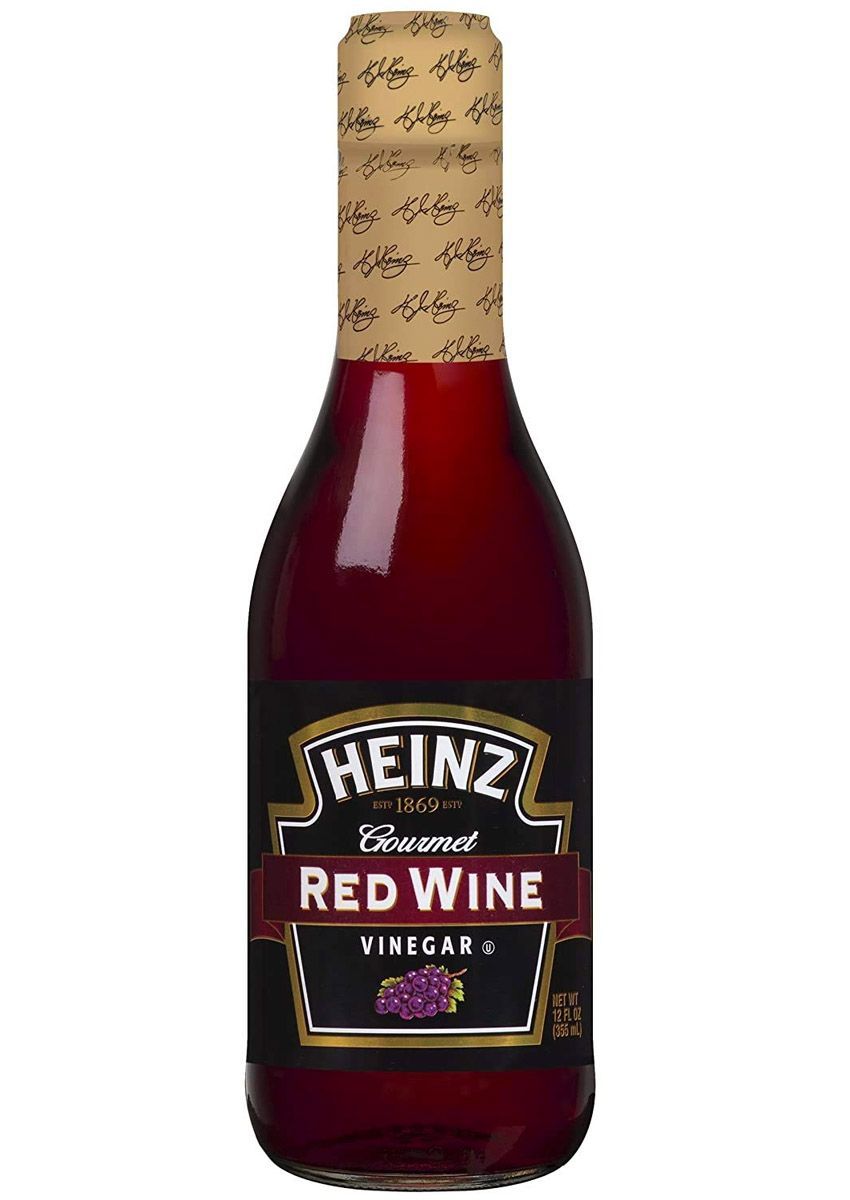
As for the substitution ratio, because ACV is much milder than red wine vinegar, you’ll definitely need to use less.
Start small with ¼ the amount of ACV required by the recipe. Do a taste test. Then, slowly add more until the flavor and acidity are to your liking.
Unseasoned Rice Vinegar
As its name suggests, rice vinegar is made from fermented rice. This kind of vinegar is commonly used in Asian-style dishes.
Because its acidity level is quite similar to ACV, it makes for a good substitute when you’re out of the latter. Bonus points if you’re dressing an oriental dish with a heavy umami taste! The rice vinegar will balance the flavor out nicely.
Before you use rice vinegar, it is important to make sure that the variant you choose is unseasoned.
Rice vinegar can be seasoned with extra salt and sugar to make it more suitable for use alongside sushi rice and Asian-style salads. Seasoned rice vinegar does not make a good match taste-wise with ACV.
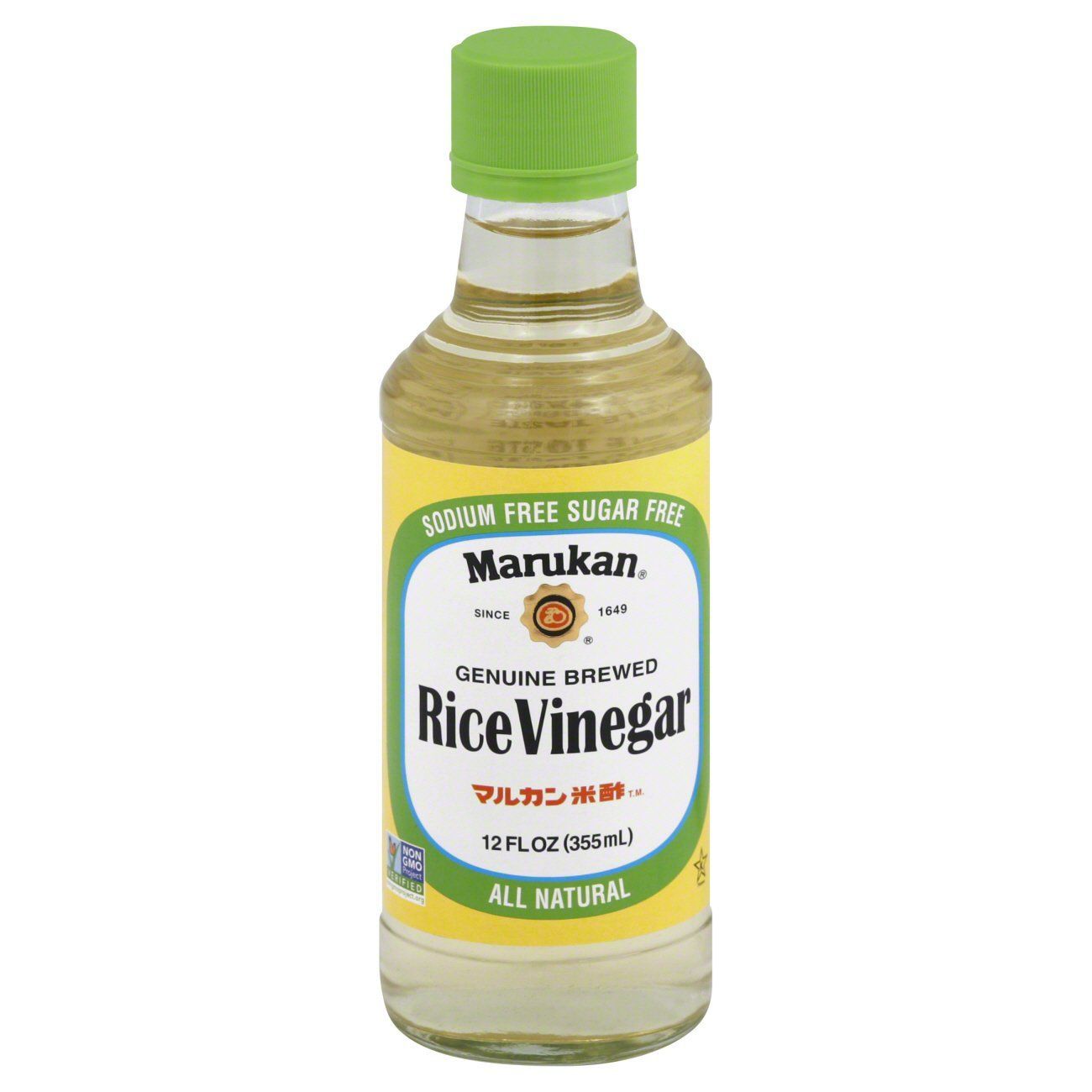
Sherry Vinegar
Sherry vinegar is quite special. It’s not as ubiquitous as other types of culinary vinegar and it has a very distinctive flavor.
After the blending and aging processes, sherry vinegar will emerge tasting very rich, earthy, and slightly sweet. However, it has also been described as having the expected sourness of vinegar, but very mild and not at all overpowering.
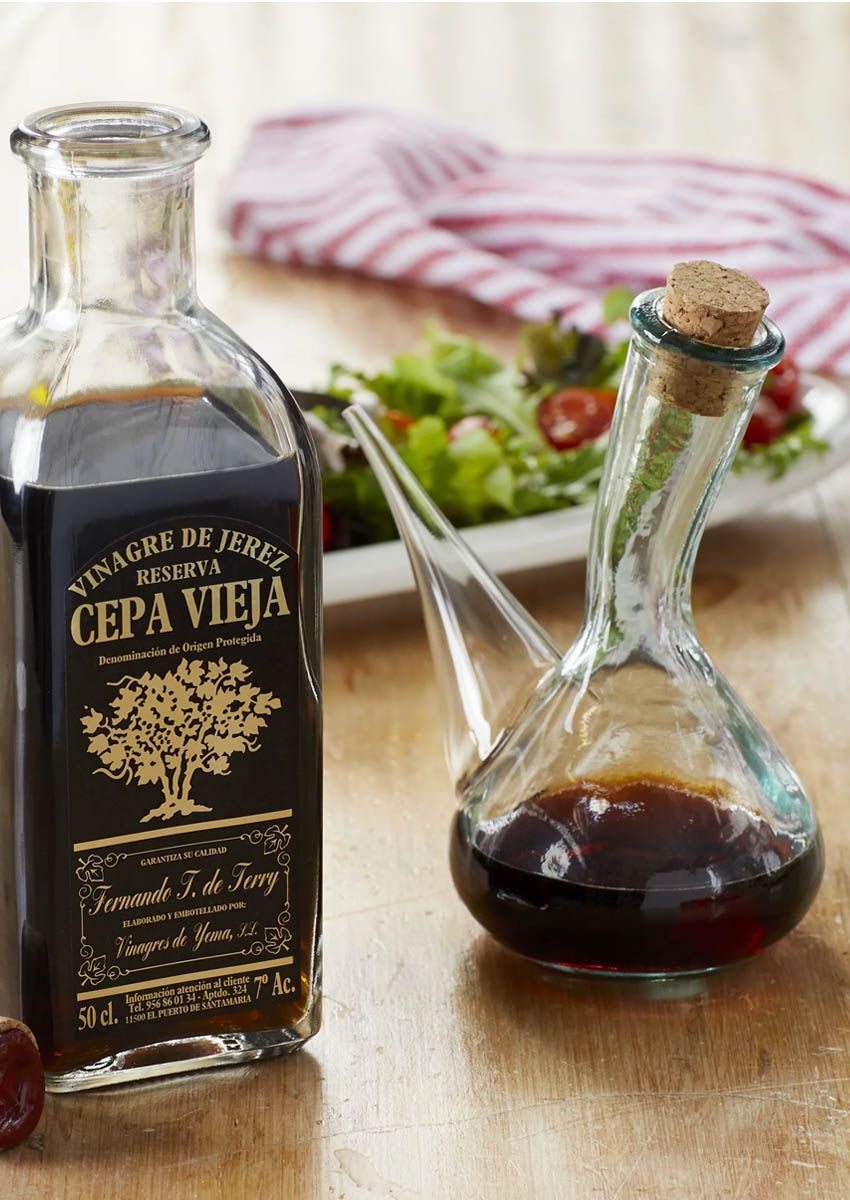
At first glance, ACV and sherry vinegar may seem like two completely different, non-interchangeable substances. But when you make the switch, the complex flavor of sherry vinegar can turn out to match that of ACV quite well.
Champagne Vinegar
Champagne vinegar is produced by, you guessed it, fermenting champagne. This type of vinegar can be found in most grocery stores and is typically used as a salad dressing. There are a few soup and broth recipes that call for a drizzle of it, too.
The tastes of champagne vinegar and ACV are quite similar: tart and tangy, but with a slight hint of sweetness. Acidity levels are roughly the same between the two.

Therefore, you can make a 1:1 substitution.
What You Shouldn’t Substitute in Place of Apple Cider Vinegar
While there are plenty of substitutes for ACV, there are plenty of others that just won’t do.
Balsamic vinegar, for example, is much too sweet to be a good match for any dish that requires ACV.
Distilled white vinegar will be too bold and won’t achieve the same gentle effect that ACV would have had on the dish.
In short, any vinegars or flavoring agents that are stronger than ACV will not make a good fit. Take your pick carefully if you want to diverge from this list of proven substitutes.
Conclusion
So there you have it, some of the best substitutes for apple cider vinegar there are.
Note that this list is not complete and you may find other things that work well in place of ACV. But if you’re not feeling adventurous, the items on this list can definitely save your meal from an ACV shortage!





